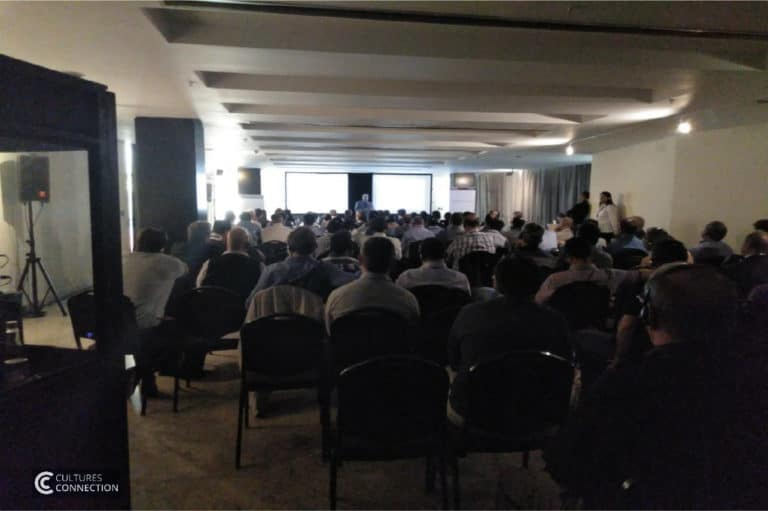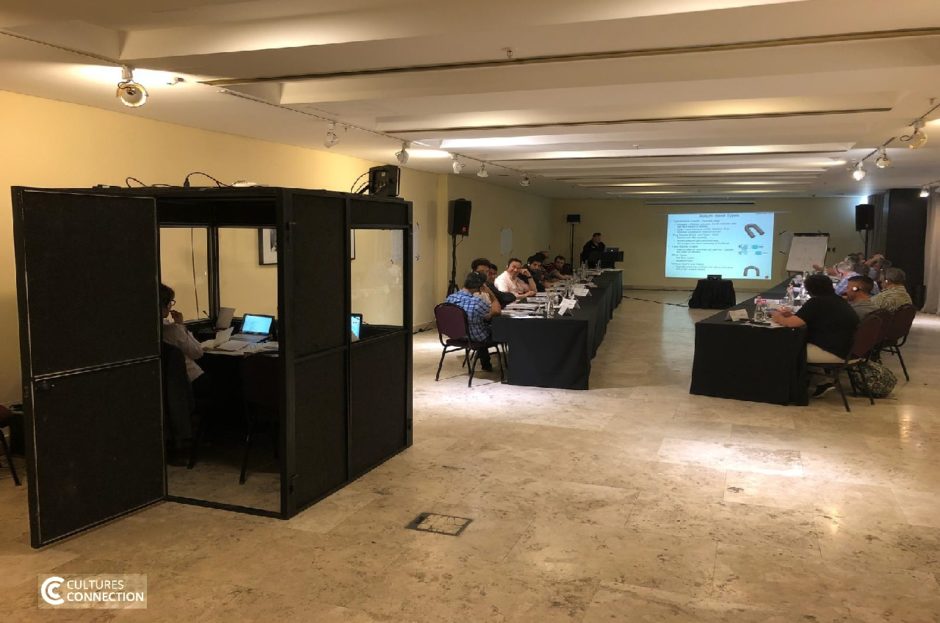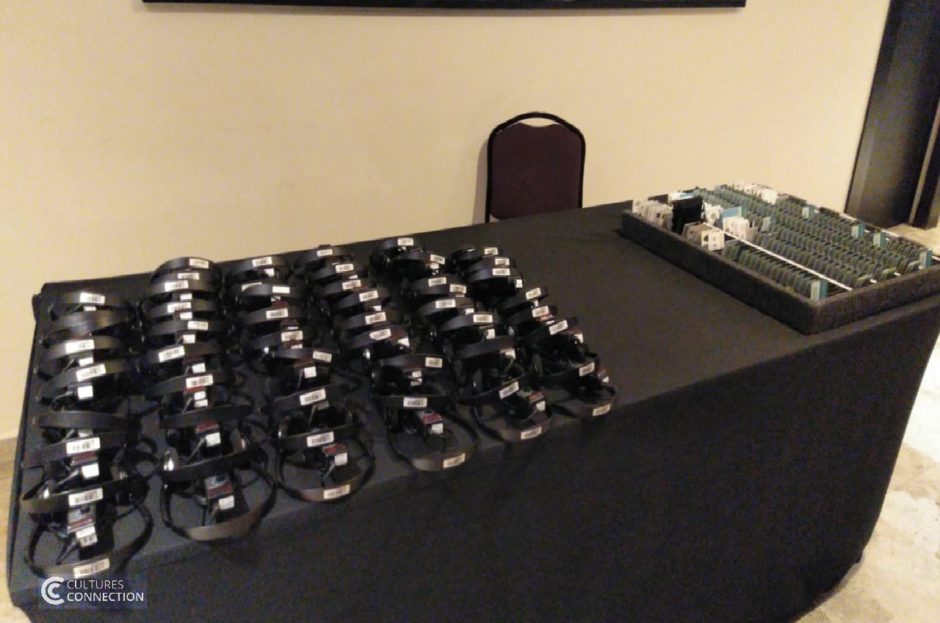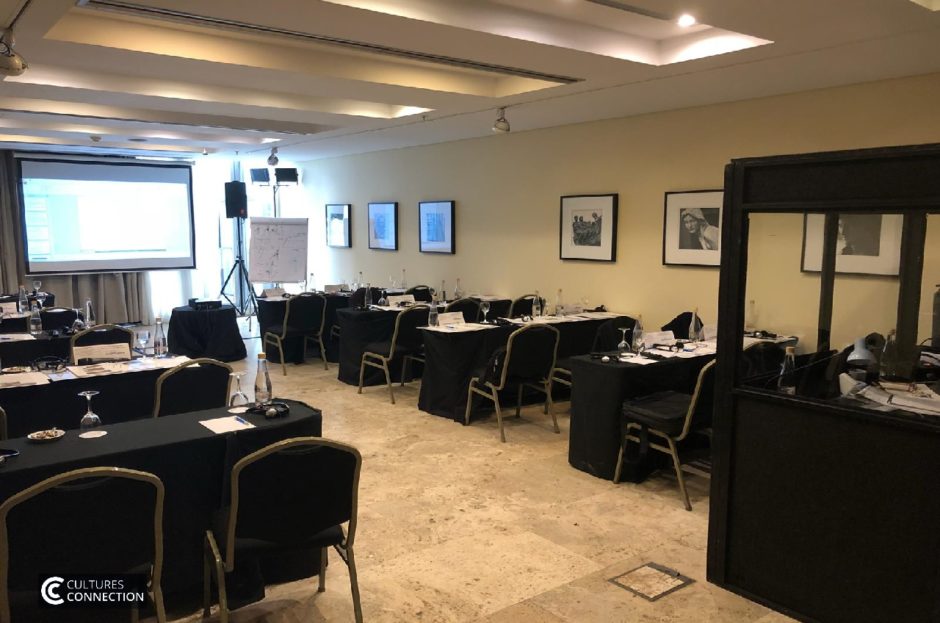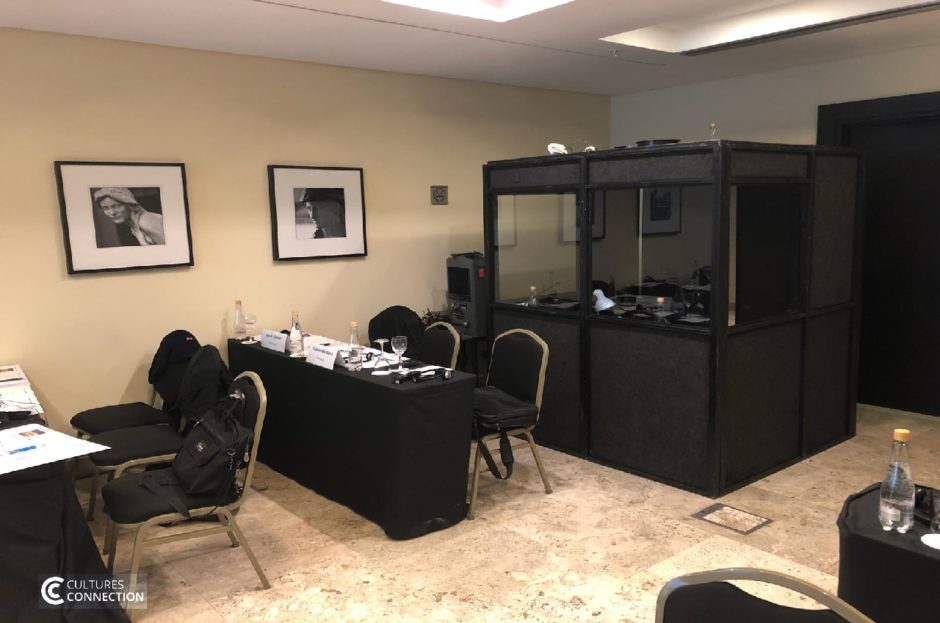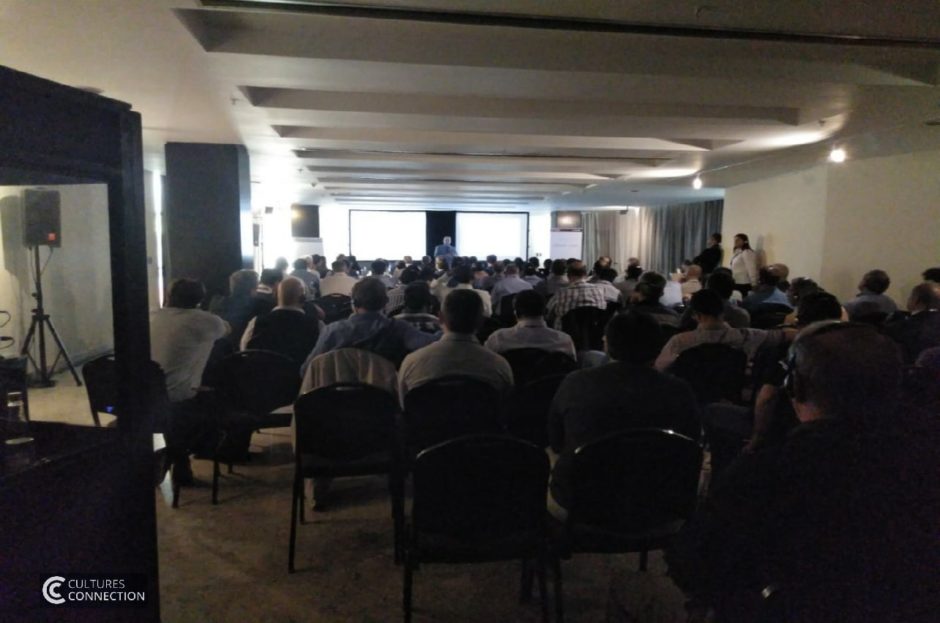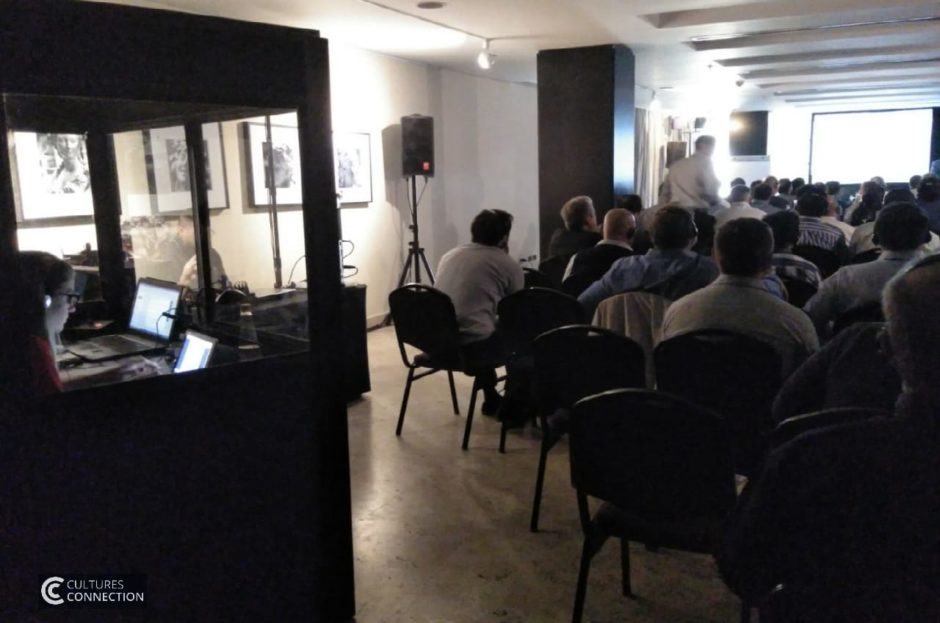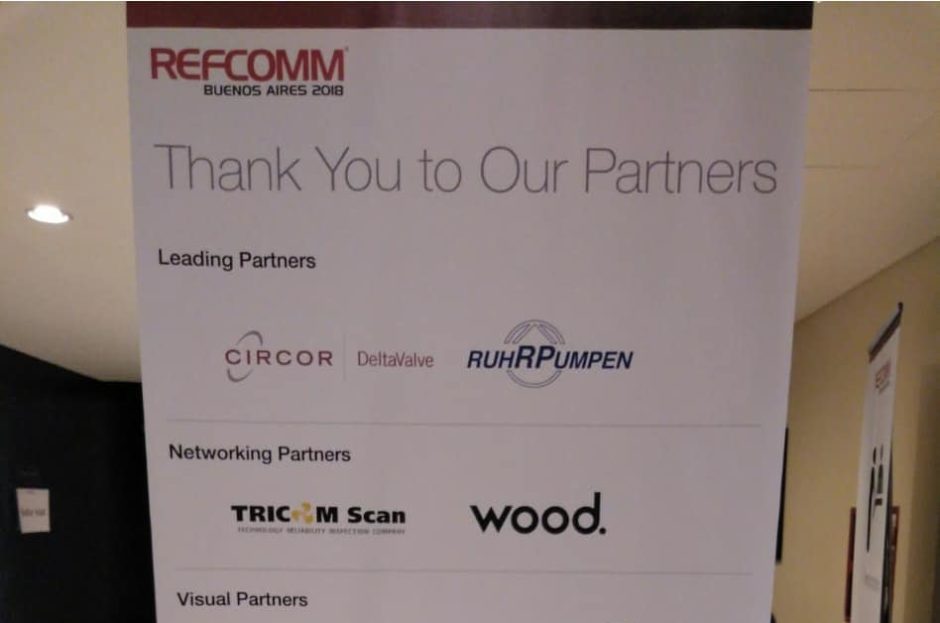Eight interpreters from Cultures Connection worked with RefComm on a technical support event for the recycling of petroleum waste.
Words are known to be liars, said writer Clarice Lispector. If the explanation of puzzling technical terms such as a “delayed coker” or “sulphur recovery” is a serious challenge for specialists, their interpretation into another language is almost unmanageable. The Cultures Connection professionals had come up against this kind of vocabulary at RefComm Buenos Aires, a series of conferences, exhibitions and activities related to petroleum that took place between November 5 and 8 at the NH Hotel. The result? Calm speeches, made understandable for the benefit of the attendees.
Refining Community (RefComm) organize these types of activities three times a year to offer technical support, training and consulting to the work teams of the most important companies in the oil and international refinery sector. For Argentina, after the event had been hosted in Spain and the United States, 2018 was their turn.
Eight interpreters from Cultures Connection provided a service of simultaneous interpretation in English-Spanish and Spanish-English over four complete days for presentations under the most demanding conditions. “To achieve the knowledge that is needed for increased production with lower risks.” was the slogan and the agency did everything in its power to facilitate it.
The first two days took the form of expert-led training practices that allowed representatives from major oil brands to learn about the trends in oil waste recycling, process optimization, example cases in developed and developing countries, chemical research and the application of new technologies. As validation for the hours invested, those present received certificates of attendance.
The last two days saw a technical conference and exhibitions for specialised companies. “It was a very complicated subject about refinery and oil, all those present were from businesses in the sector. Many approached the interpreters and congratulated them. The interpreters were very happy with the feedback”, said Maria, representative of the Cultures Connection Buenos Aires office, who attended the four days of the event to ensure good customer service.
Grounded Interpretation
All the interpreters hired by the agency agreed that the biggest challenge was the technical complexity that the subject matter concerned, relating to the processing of coke and sulphur. They were able to overcome this successfully thanks to their previous experiences, collaboration and even the contribution of the attendees, who were surprised by the high quality of the interpretation, and enthusiastically offered their help to perfect the interpreted versions and inform the interpreters of English-Spanish equivalents of terms.
Maria commented that the audience were very impressed and paid unwavering attention to the exhibitions. To such an extent that they noticed the difference in voices of the interpreters in their headphones when they changed over every 20 minutes, the recommended working time in order to rest and maintain performance levels. After they asked them why with great curiosity.
She went on to say, “the situation was really nice because many people asked the interpreters if they had studied chemistry. The interpreters went on to explain their work, and that they are sent the material beforehand to study it. Many attendees told us that ‘they are very good, it seemed like that they had worked in the field, they didn’t get confused about anything’”.
Gerardo, one of the interpreters for the event, highlights an important point that RefComm had sent presentations and manuals about the event beforehand. This allowed him to look over all the material ahead of time in order to prepare himself: I think having a prior cognitive framework allows us to contextualize and better understand the new elements that inevitably appear in conferences”.
The presentations were all carried out within the timeframe. During the first two days, four rooms were used simultaneously, while for the last two days two rooms were used at the same time. The interpreters worked with the app sli.do, a tool that allowed them to see the audience questions from their cabins in order to translate them into English.
Marifé, another interpreter hired for the occasion, worked for two days at double time in a room where a training course on coke chambers was developed. “We only had one speaker in English both days, and Q&A sessions in the two languages. The speaker was very clear, precise and did not speak too fast. It was very technical, but by having the presentation we were able to make glossaries, which simplified everything”, commented the interpreter from St Catharine’s College, Cambridge.
“The same term can have a completely different equivalent in different Latin American countries, for example ‘stripper’, that a Colombian participant translated as ‘despojador’, is known in Argentina as ‘separador’ or ‘depurador’. As an interpreter, one finds that, very often specialized language is subject to dialectal variants”, Gerardo, who was trained in Interpretation at the Centro de Capacitación for Interpreters and Translators of Buenos Aires, explains.
In this way, RefComm finished its year achieving its objectives in an industry where a future full of changes and challenges is predicted. For this reason, they have already set their sights on 2019, when they will organize similar events in the United States, The Netherlands and Chile. Because the best way to face new challenges is to prepare.
Translation into English: William Steel
Discover our interpretation services.
